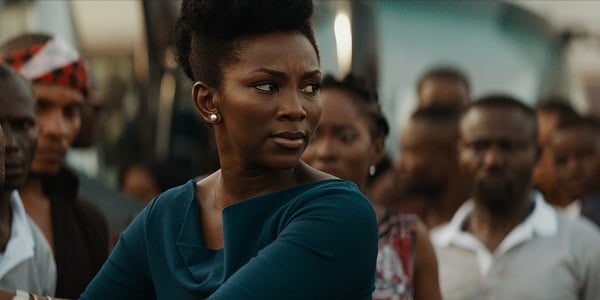When Emmanuel Macron, France President, visited Lagos in July, media mogul and producer of several feel-good Nollywood movies, Mo Abudu, asked the world leader a few questions.
Abudu was keen to know how Nollywood movies can feature in French film festivals and win French awards, a question that Macron had no answer to and which he swiftly passed over to filmmaker, Abderrahmane Sissako, who danced around it and gave a vague response.
Several months later, Abudu would get a response but not from the French and their soft diplomatic mission to Nigeria.
Instead, it was through Genevieve Nnaji, an actor who, despite her fame and status in the industry, maintained a low-key presence that night at the Afrika Shrine while her Nollywood colleagues entertained the foreign visitors and political class.
A few weeks ago, it was announced that Nnaji’s latest feature film – which she featured in, directed and produced – had become the first Nollywood to be originally acquired by online streaming giant, Netflix.
The acquisition meant that Nnaji had unlocked a new stage for Nigerian filmmakers – and she did so silently, proving, really, that content is king; quality over hype and critical strategy over glossiness.
Nnaji’s ‘Lionheart’, going by its trailer, is a far departure from new Nollywood movies that tend to confuse middle-class Lagos with the rest of Nigeria, fueling the misconception that Lagos is Nigeria thus misrepresenting and failing to extensively tell stories of people across the country.
This is not to say that there has been no improvement over the years. Far from it. Nollywood has grown, so much so that there is now a distinctive growth maker: old Nollywood and new Nollywood.
It is also pertinent to add that Abudu, and other producers like herself, have played a critical role in the growth of Nollywood, becoming the frontrunners of the new Nollywood movement. Abudu’s movies – ‘gaugy mess as cinema’, as one film critic described it – are of remarkable quality, proving to be huge money makers and game changers.
But her vision and storytelling are firmly rooted in Lekki Phase I and Victoria Island.
By combining old Nollywood with new Nollywood, moving away from the gloss of Lekki to the dustiness of Enugu, Nnaji is doing the Lord’s work for Nollywood.
She is charting a new course and reminding other filmmakers that we can tell more stories, that weddings and marriage aren’t all Nigerians want to see, that old Nollywood isn’t bad, and that films can be set far from Lagos and still be wonderful and funny.
Nnaji’s success makes this a critical and teachable time for Nollywood. Hopefully, Abudu, Accelerate TV and other filmmakers are taking notes.
Copyright 2025 TheCable. All rights reserved. This material, and other digital content on this website, may not be reproduced, published, broadcast, rewritten or redistributed in whole or in part without prior express written permission from TheCable.
Follow us on twitter @Thecablestyle

